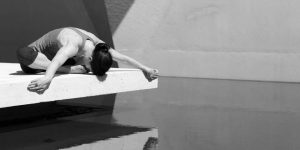25.05.2017
LycaHealth are delighted to announce that Mr Syed Aftab, consultant spine specialist has joined our Canary Wharf facility.
Mr Aftab is a complex spinal surgeon at the Royal London (Barts Health NHS Trust). Having completed pre-clinical medicine at Pembroke College, Cambridge University, he went on to Edinburgh University for clinical medicine. He underwent higher surgical training in Orthopaedics and Spinal Surgery at the Royal National Orthopaedic Hospital – Stanmore (North East Thames) Rotation, he also gained a MSc at University College London in Trauma and Orthopaedics during his training. Mr Aftab has completed advanced fellowships in spinal surgery including adult deformity, paediatric deformity, spinal trauma, spinal tumour surgery, minimally invasive spinal surgery and degenerative spinal surgery. He has a strong interest in minimally invasive surgery in trauma and complex degenerative spine.
Syed believes that the best outcomes for patients can only be achieved when decisions are carefully considered and work within the framework of a multidisciplinary team which includes other spinal orthopaedic consultants, neurosurgeons, anaesthetists, and pain specialists. Syed is widely published in a number of peer-reviewed medical journals and is actively involved in research into emerging spinal surgery techniques and procedures.
He has presented at national and international conferences and has specific specialist interests in
Spine surgery/ Spinal cord injury/ Intervertebral disk degeneration/ Neuro-oncology/ Adult spinal deformity/ Paediatric deformity/ Spinal trauma/ Spinal tumour surgery/ Minimally invasive spinal surgery/ Degenerative spinal surgery
In light of Spinal Cord Injury Awareness Day, we spent 15 minutes with Mr Aftab where he described his practice in detail whilst emphasising the importance of looking after our backs!

What would be the ideal method to take care of ones back? Should one keep active by going for a 5 mile run every day?
Remaining active going for a five-mile run everyday, these are not necessarily the only things to do. The kind of thing that you need to do is to focus on the back…So, non-impact activities such as Pilates, yoga, and swimming, are great because they help you target the core, and increase core strength
If one incorporated sit ups into their exercise regime, would that be enough to strengthen your core?
Now people always say “Well I do a lot of sit-ups”. Sit ups are not the only thing you do for your core. Sit-ups is for your anterior abdominal wall. The core is your anterior abdominal wall, your back muscles, your flag muscles, your pelvic floor and your diaphragm.
What are the main benefits of Pilates, Yoga and Swimming?
So, Pilates, yoga, and swimming keep your core strengthened, when you swim you end up using muscles that you never knew existed. Pilates is a great discipline in strengthening your core. Yoga is good for stretching your core. These are broad generalisations, there are massive overlaps but they are genuinely good for you and everybody should do it. Just 20 minutes of each, once a week.
What else can one be mindful of in their daily routines?
If you sit, don’t slouch! Slouching is actually the worst position you can be in. It puts four times the load than you would if you are standing up. If slouching is comfortable, there is probably something else going on and you need to work on your core.
If you lift something, lift it from your hips and your knees, not from your back!
If you are lifting a load, you should always ensure that the load is no longer than a forearm’s length away from your body, even if you are picking up children for example.
These are the kinds of things we need to instil into our daily practice and our daily lives, and if you do that; your back looks after itself.
What advice would you give to those that spend long periods of time in front of computer screens?
Office workers have problems because they sit at a desk and stare at their screen for long periods of time. No matter how optimum you make the space, it is not a natural position to be in. So, we need to make sure we do these things to compensate for that. If you are sitting at a desk, make sure you get up every half an hour to wander around.

How does incorporating these daily practices help with those that suffer from back problems?
If you do these things 9/10 patients will avoid having major problems. Even if you have pre-existing problems 9/10 times you will also avoid the need for invasive treatment.
Invasive treatment is where we consider the use of injections, and possibly even surgery. These options are really approached as a last resort. We will always try to use non-invasive options as the first line of treatment, this could include non-invasive pain management solutions, and Spinal decompression therapy, just to name a few.
By in large, back pain itself does not respond to surgery. There are a lot of things that can happen to your back, where the disk goes for example and presses on a nerve. That kind of situation potentially requires surgery. But then again, as mentioned this is viewed as a last resort. We always tend to try non-invasive methods first.
How does a person’s mental health affect their back?
If you are in a bad place in your life, because things around you are not going well, and life is tough or you are suffering from stress, you will experience somatic manifestations of it. And back pain is one of the most common ways in which that manifests. So, looking after your back is not just about looking after your body, it is about looking after your mind as well. In fact, when I see a patient I say 50 percent of their pain is the psychological management of the back, and 50 percent physical management of the back. You tend to find that one feeds off the other, so you should be conscious of that, and that’s where yoga, swimming, and pilates can significantly help.
Which activity would you say is most successful towards the PSYCHOLOGICAL management of the back?
Yoga is well known to help people with anxiety and depression issues, it can significantly make a difference. If you can address both your stretching and your mental well-being all at the same time through a simple activity that people have been doing for over 5,000 years; it seems like a no-brainer, and comes with zero risks (when done in a safe and managed environment under guidance).

For a Spinal Surgeon, it sounds like you try to veer away from surgery, is that the correct?
As a surgeon, you may not understand why I am saying these things, as it would reduce the number of patients I get, but the reality is that I need my patients to get better. As the first point of call, people often see, or are referred to a surgeon who would typically arrange for the patient to have a scan (usually an MRI) to identify/rule out any obvious physical problems., If there is a physical problem- It’s a surgeon who would typically be advising on the appropriate treatment pathway for the patient.. My job; I find, is to point people in the right direction and devise an appropriate treatment pathway. I am able to then identify the one or two people that do need an operation, because, without it, their back pain condition will not get better –(but this is always a last resort). Unfortunately I do see many patients who have the very sinister, nasty, dangerous things like the cancers, infections, and traumas which are the bulk of my practice, so, if that is something you need surgery for, that is totally different from what we are talking about, but back pain in general, should be managed non-surgically, until every avenue and pain management process has been exhausted, and the patient has a part to play, as they too need to take responsibility for their health.
By doing so, you will do yourself a big favour in the long run. If you incorporate some of the exercise options we have discussed, it’s likely that (with a little bit of luck) back pain will never come. Unfortunately, the thing is; many people will chance, poor posture, lifting heavy objects incorrectly, and slouching at their desks, because the majority will not have a problem long term. But I believe it’s good to look after yourself, and prevention is always better than cure – it makes sense to adhere to the recommendations to ensure positive wellbeing and good back health, this, in turn, can lead to an improved quality of life
END:
There you have it, a top spinal surgeon recommends non-invasive treatment methods as the first point of call before recommending surgery! He offered simple tips that can be incorporated into your daily life, and the best thing of all is – these tips do not only target your back, they focus on the overall health of your body and wellbeing!

Syed Aftab’s top tips for looking after your back and take home message:
Mr Syed Aftab’s specialist interests include:
Mr Aftab practices at LycaHealth Canary Wharf, he runs a weekly back pain clinic on a Wednesday afternoon
If you would like to book an appointment with Mr Syed Aftab please call 0207 132 1440 or visit: www.lycahealth.com
Stay up to date
To request information on any of our other services, please call or complete the enquiry form below: